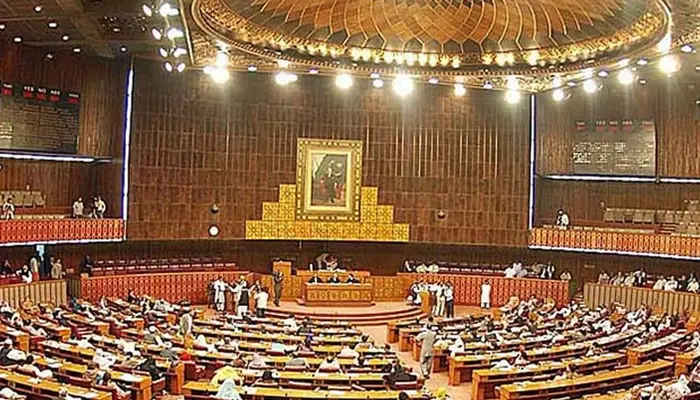ISLAMABAD – The Pakistan Peoples Party (PPP) on Wednesday voiced serious concerns over politically sensitive clauses in the federal budget for the upcoming fiscal year, pushing the government to amend them before the Finance Bill 2025 goes to a vote in the National Assembly today (Thursday).
PPP MNA and former finance minister Naveed Qamar met Finance Minister Muhammad Aurangzeb in a bid to build consensus on the bill’s most contentious provisions. Qamar, who now chairs the National Assembly Standing Committee on Finance and Revenue, warned that the party remains uneasy with several measures — particularly expanded arrest powers granted to the Federal Board of Revenue (FBR).
Tensions have grown within the ruling coalition ahead of the vote, prompting Prime Minister Shehbaz Sharif to hold back-to-back meetings with lawmakers to secure attendance and ensure support. A source in the PM Secretariat revealed that Sharif has met five to six MNAs daily since the budget was tabled.
“These short meetings help address concerns directly and build loyalty before the vote,” the source said.
Read: Pakistan Cracks RAW Spy Network in Punjab and Sindh
FBR Arrest Powers and Property Clauses Remain Flashpoints
The most controversial proposal involves the FBR’s authority to arrest individuals for suspected tax fraud. The PPP opposes this clause, citing fears of misuse and political victimization. Qamar confirmed discussions with the PML-N are ongoing to amend the language before the final vote.
Another unpopular measure links the purchase of property and vehicles to the buyer’s declared income. While the government has adjusted thresholds, the PPP believes it could harm the real estate sector. The third contentious item deals with utility disconnection for unregistered businesses, which has now been softened in the revised draft.
A cabinet meeting today is expected to approve the updated Finance Bill, which reportedly incorporates nearly half the Standing Committee’s recommendations — a first in Pakistan’s legislative history.
Standing Committee Asserts Greater Parliamentary Role
This year marks a turning point in budget oversight. For the first time, the National Assembly Standing Committee on Finance — led by a coalition partner, not the ruling party — conducted a clause-by-clause review of the bill. Qamar described the shift as a “landmark achievement.”
He credited a 2024 amendment to Rule 122 of the Rules of Procedure, which made it mandatory for the Finance Bill to be reviewed by the finance committee. Unlike the Senate’s non-binding suggestions, the National Assembly’s recommendations are binding.
Qamar emphasized that this process moves budget-making power from bureaucrats to elected representatives. “This is no longer a rubber-stamp process,” he said. “Parliament is now shaping policy at the micro level.”
Follow us on Instagram, YouTube, Facebook,, X and TikTok for latest updates
